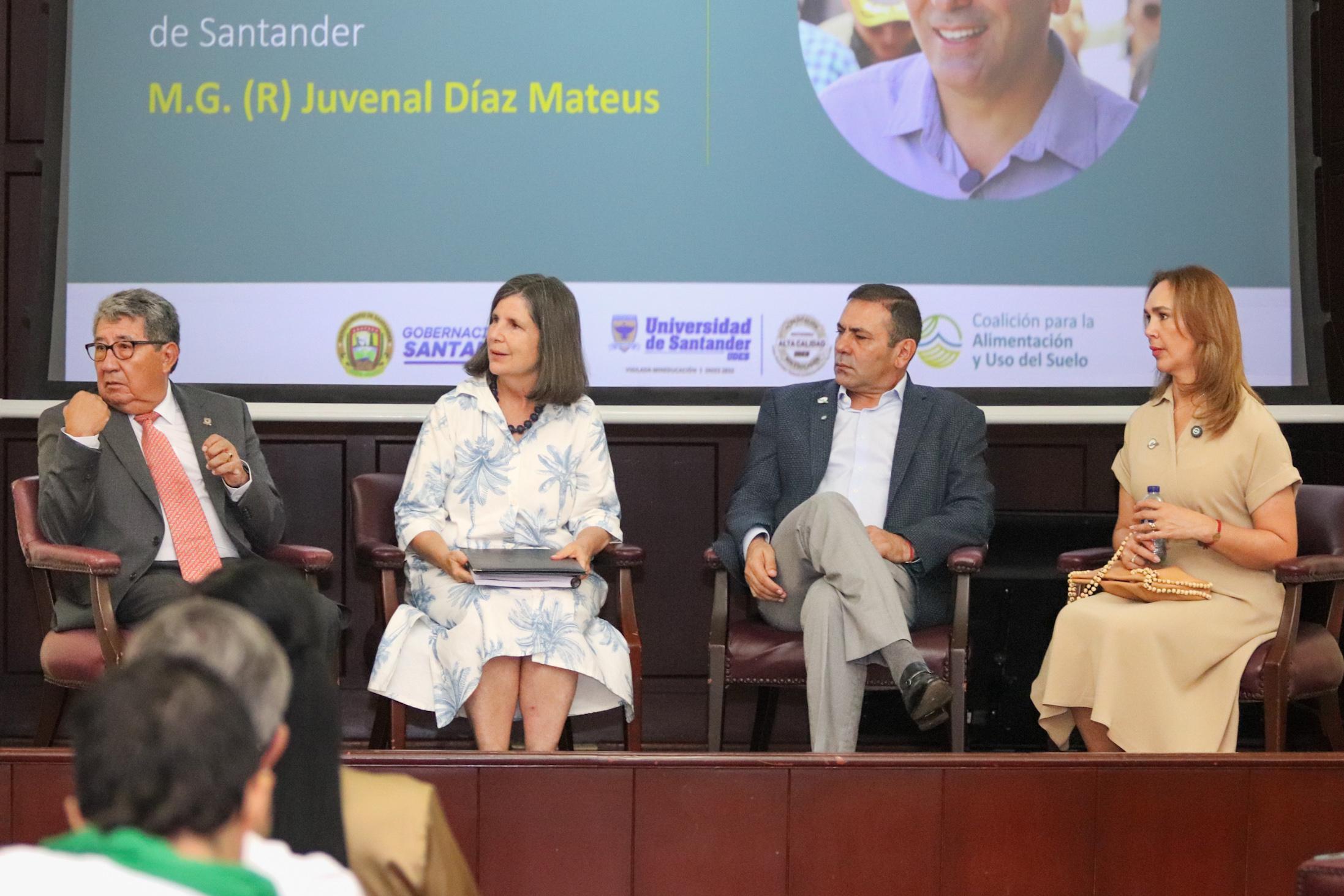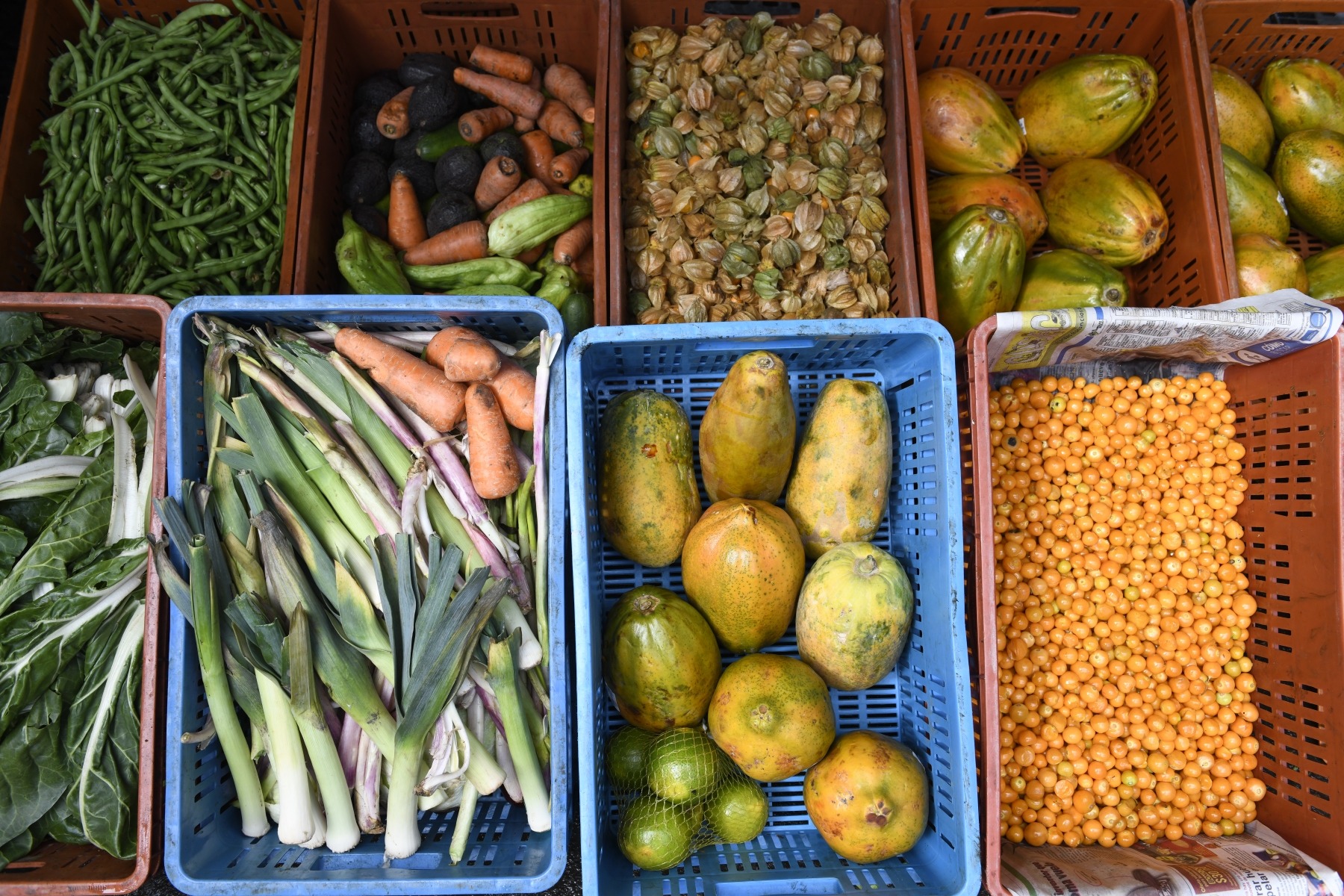Marked by agriculture—which is the main economic activity in 90% of its municipalities—the department of Santander, a region located in the Northeast of Colombia, is the fifth largest economy in the country and one of Colombia’s main centers of food production, with internationally recognized products such as coffee and cocoa.
Despite this, the department faces significant challenges that affect both food production and access to healthy, quality nutrition. Three out of four municipalities are considered high-risk food insecurity zones due to climate change, and around a quarter of the population cannot afford to eat a diverse diet that includes fruits and vegetables daily.
In this context, the Roadmap for the Transformation of Food Systems of Santander is a strategic effort to turn the department’s food systems into engines of development, equity, and health—driving an innovative, diversified, and regenerative agricultural sector; creating efficient and inclusive markets and enterprises; restoring landscapes and water sources; and fostering healthier, more conscious diets for the lasting well-being of its people.
This initiative is the result of joint work between the Government of Santander (a department in northeastern Colombia), the University of Santander (UDES), and the Food and Land Use Coalition (FOLU), coordinated in Colombia by E3 – Ecology, Economy, and Ethics.
The process involved over 450 key stakeholders from the public sector, private companies, civil society organizations, trade associations, and academia. As FOLU Colombia Director Claudia Martínez states, “This Roadmap is an invitation to rethink the future of the department by promoting food systems that ensure the well-being of its people. Santander has all the potential to lead a profound transformation of its food systems by connecting stakeholders, restoring landscapes, and strengthening the link between rural and urban areas. This 2035 vision sets a clear path for advancing with determination and commitment.”
To move this vision forward, the roadmap identifies four strategic pillars: productive, regenerative, and biodiverse landscapes; diverse supply, transformation, and market systems; health, nutrition, and awareness; and education, innovation, science, and technology.
These pillars include harmonizing and articulating territorial planning, promoting the formalization and allocation of land to ensure long-term agricultural stability; prioritizing nature-based solutions for the conservation of strategic ecosystems; and reinforcing Santander’s commitment to environmental regeneration.
At the core of the strategy is a focus on productive, regenerative, and resilient agricultural and fishing practices—fostering diversification and innovation while reducing food losses. To strengthen distribution systems, the initiative supports collaborative, associative, and solidarity-based models that improve efficiency and promote local economic development.
To ensure transformation beyond production, the roadmap emphasizes improvements in infrastructure, technology, and innovation to optimize the commercialization, transformation, and logistics of agricultural products. It also promotes ventures linked to productive, regenerative, and innovative value chains, unlocking new opportunities for sustainable entrepreneurship. In public health, the plan prioritizes better diets and nutrition, while encouraging behavior change in how food is acquired, prepared, and consumed. Finally, the Roadmap calls for stronger public and private action to reduce Food Loss and Waste (FLW), promoting more efficient and equitable use of food resources.
According to Juvenal Díaz Mateus, Governor of Santander, through the implementation of this Roadmap, “Santander aims to become a national reference point for the transformation of food systems. From the Government, we want to comprehensively promote the pillars of this roadmap, including achieving productive, regenerative, and biodiverse landscapes, diversifying the foods we produce, creating diverse and equitable markets, fostering awareness, nutrition, and health, alongside innovative models of education, science, and technology.”

Photo by Gobernación de Santander.










